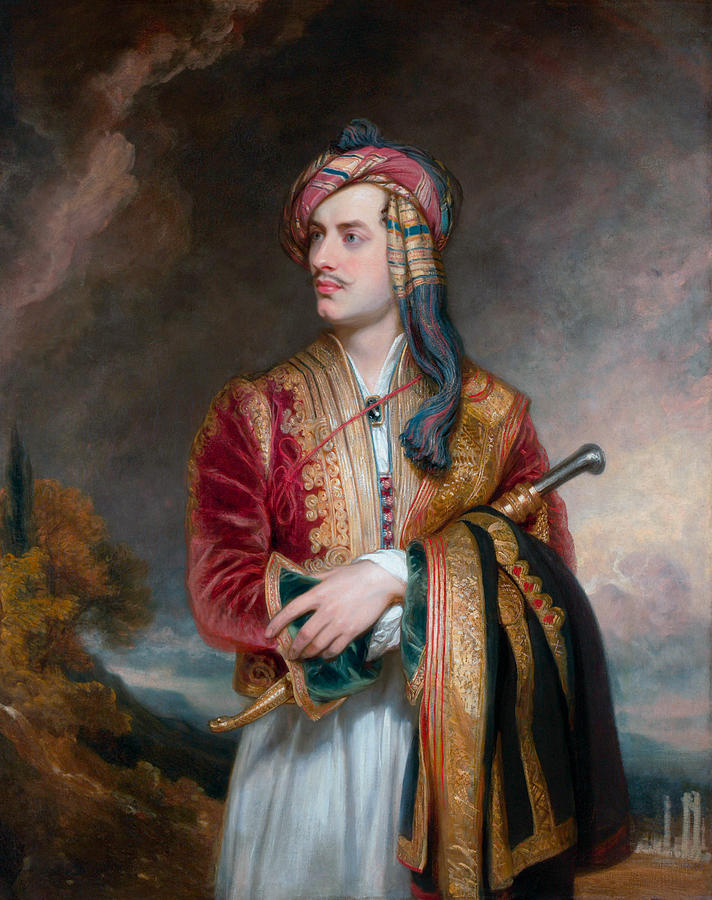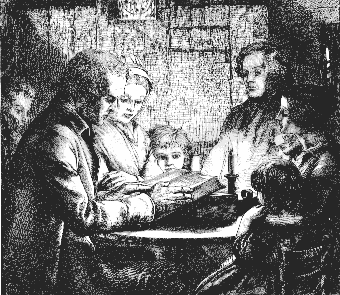
Whitman’s poetry sounds exactly like Emerson’s prose—has anyone ever noticed that? “The Poet” by Emerson expresses Whitman’s philosophy. The essay “English Traits” by Emerson is deeply racist. As for Whitman’s little poem, “To A Certain Civilian,” it is arrogant in the extreme. No, I understand you, Walter. And very well. The avant-garde gesture can only be made once, like putting a toilet in a museum; it’s exciting when it’s first done, but after that it quickly becomes intellectually inhibiting and didactically boring. It is thrilling to see Whitman “step out” of the “poem” and speak in a sour manner to the reader.
TO A CERTAIN CIVILIAN
DID YOU ask dulcet rhymes from me?
Did you find what I sang erewhile so hard to follow,
to understand?
Why I was not singing erewhile for you to follow, to
understand—nor am I now;
—What to such as you, anyhow, such a poet as I?
—therefore leave my works,
And go lull yourself with what you can understand;
For I lull nobody—and you will never understand me.
Actually, Dante had already done this. In the Vita Nuova, (wonderful book!) Dante orders his poem to to go to his lady and speaks in prose about his experiences and the poems he is about to write of these experiences, so that his thoughts are, and are not, his poems, in a kind of hyper-simple, hyper-mysterious, writing-workshop. English took a long time to catch up to Dante. Poe, a modernized Dante, compartmentalized into Criticism, Verse, Prose, was Emerson’s and Whitman’s target. (Emerson’s “The Poet” attacks Poe, unnamed.) The All-Encompassing Genius vs. Avant-garde Hacks. Emerson and Whitman represent the pseudo-liberal position, always divisive, incomplete, and rather bullying. Poe, the well-rounded genius of dulcet rhymes and remarkable innovation and reach, hounded by America’s literary elites, is, through Scarriet, having the last laugh.
Why do people take Pound so seriously? I understand he’s a religion—all those poets who made pilgrimages to St. Elizabeth’s. Talk (fame) garners fame, etc. But he began as an Imagiste (ripping off haiku). He was extremely pro-war his entire career. He didn’t know any languages; he “translated” from other’s English translations. People know that, right? He didn’t invent translation, for God’s sake. His criticism, “How To Read,” etc is nonsensical, blowhard, dreck. His attempt to write school textbooks in middle age bombed. His Cantos is 99% footnote-dreck, private ravings. Because he became a religion, he’s merely a ready-made excuse for the elevation of pseudo profound bad poetry. Never mind he fought for the Axis, he was just a madman/creep, living off of women, and he didn’t “make” anyone. Eliot, the genius of “Prufrock,” declined after he became associated with Pound. Let’s cut all this Pound crap, can we?
Pound influenced no one. He was a social butterfly. His chief income was money from dad. His influence was social, not literary, and even in this sphere he was a loser. When his ex-girlfriend H.D. was married to Richard Aldington, Pound would show up unannounced, to discuss poetry with her—she subsequently moved to another part of London, to escape him. It helped his reputation that he knew Yeats, but Yeats, like Eliot, like Joyce, were fully formed as artists; Pound was merely a secretary/manager of their affairs, a valet, essentially. When the creepy Yeats tried to marry Maude Gonne’s daughter (she was twenty-one, he was fifty-two) just to upset the mother, whom he had wooed unsuccessfully, Yeats turned around and married another woman in her early 20s, Georgie, who Yeats ended up calling George a year later as the marriage failed. Pound was the one witness to the wedding. Pound was “useful.” Poor Eliot had great promise, but 12 years elapsed between “Prufrock” and “The Waste Land,” and in his late 30s into his 40s, in what should have been his middle-aged peak, Eliot fled from his wife and condemned Shelley and the Jews; during this period Pound wrote harsh, empty, bombastic, criticism; embraced Hitler. Pound ends up in a cage after a sequence of literary failures; Eliot remarries and helps to rescue fascist Pound. It’s all ridiculous. Modernism a low, seedy, joke, its best moments in “Prufrock” and the 19th century French poets who influenced Eliot. Even Eliot’s criticism is over-rated; derivative; at times outlandish; but he secretly stole from some good authors: Dante, Arnold, Poe—Eliot later nastily trashed Poe when Eliot was sixty-two, reaching out in desperation for some hard-nosed Modernist relevance at that point, perhaps, as he and Pound were being held aloft as revolutionary greats by a new generation of idiots trying to “make it new.”
I should add Pound didn’t “begin” with haiku rip-offs; Imagism was his H.D./second phase (producing a few ‘zines no one read); the first was a “stiff” antiquarian imitative phase, basically laughed at (same as WC Williams, who rhymed at first). Failing at traditional poetry, minimalism was a new trick, which only succeeded later for Williams and Pound when they were both picked up by the New Critic’s successful text book, Understanding Poetry—at that point, Williams and Pound were has-beens in their fifties.
People will often show me Pound’s poetry (as if they can’t believe I’ve read him.) Oh God, I hate “In A Station At the Metro.” This wretched, failed, haiku literally tells the reader what the petals stand for. This may be the worst poem ever written.
The chief reason we are shamed into admiring Modernist poetry is the Moderns successfully condemned the “sentimental,” and somehow managed to make us think only 19th century poetry is sentimental.
Oscar Wilde (in the 19th century) condemned it as well: “A sentimentalist is simply one who wants to have the luxury of an emotion without paying for it.”
I love Wilde but if I’m granted the luxury without paying for it, why not? This is not one of Wilde’s best epigrams.
We’ve all heard how sentimentality is abused. The terms “inauthenticity” and “mawkishness” are trotted out. Sentimentality isn’t genuine feeling, it is said. Or, it’s counterfeit feeling. It’s a demonstration, or “performance” of genuine sentiment. Ultimately, it’s just phony and untrustworthy. Etc
But don’t we get into trouble when we censor “performance” in what is essentially a dramatic art form? Or isn’t it equally untrustworthy to use the term “untrustworthy?” Socrates says all emotion is untrustworthy. Does that mean to avoid “sentimentality,” we are asking that poetry have no emotion whatsoever? Also, to “earn” the emotion—this implies length and work, when we all know wonderful poems convey emotion briefly and instantaneously. I may “trust” that James Wright loves ponies (“A Blessing”) or WC Williams loves cold plums, (“This Is Just To Say,”) but this certainly doesn’t help me understand why the Moderns consider Shelley and Poe “sentimental.” (I don’t.) The topic—let’s define more specifically the “mawkish”—may be somewhat counter-intuitive.
I don’t care for Williams, but he was a clever guy. Zany/flowery vs. Utilitarian. Yes. We eat plums and only smell flowers so plums are more utilitarian than flowers. Therefore Williams made progress away from 19th century “flowery sentimentality” with his famous plums poem. (Which has been parodied endlessly—“this is just to say I used the last of the toilet paper…”) The dilemma is this. The sentimental doesn’t belong in the argument. It is a given that all poetry which moves us moves us in a sentimental manner—so the whole issue of sentimentality is a distraction/red herring. Eliot tried to think in terms of balance with his objective correlative. Eliot asked: How much emotion does this object deserve? And so with Eliot’s point in mind: If you’re emotional or sentimental about it or not, it really makes no difference—if your poem is about cold plums your poem is about cold plums and I’m not going to read it. Poe’s “A Dream Within A Dream” is highly sentimental—and would suffer as a poem if it mourned a small plum juice stain on the poet’s white shirt. Poe’s poem succeeds since it performs something which could very easily fail—but for unique (and simple) reasons, does not. But here’s the clever Modernist secret: Poems on plums cannot fail; the expectation is low. The modern poet has found a “way” not to “fail.” (The only problem is that all avant-garde tricks only work once. There can only be one Ashbery—a poet lauded because he cannot be understood. You try it today, and see how far you get.) And those “old” poems were all entirely “too sentimental.” Today’s poet—who learned from the Moderns—is sure of this.
Why is “experimental” poetry always bad? For this very reason. Avant-garde gestures—if they are truly avant-garde—work once, and once only. After the toilet is put into the museum, the toilet-in-the-museum joke is no longer funny and will never be funny, or interesting, again. Those who persist in whatever “experimentation” seems interesting at the moment are vanquished by this iron law. The idea for the poem is not the poem. This is why Poe wrote “The Philosophy of Composition” and “The Raven” and why they are both necessary to each other—and why the fact that they are necessary to each other offends those who are chronically and continually avant-garde. The avant-garde gesture (and this is why it only works once) is precisely where the “idea” of “putting a toilet in a museum” and “putting a toilet in a museum” are the same—there is no division in Modernism; it’s all experiment; it’s all idea—and that’s why there is so little art in it which is popular and lasts.
When I say “idea” as it pertains to Modernism, I don’t mean coherent ideas, coherent thought. Every modern poet, almost without exception, says they love Pound’s work “in spite of his ideas.” Modernism never truly cared about ideas—only movements and moments. By “idea,” here, I mean, “wouldn’t it be a cool idea to put a toilet in a museum?”
The defenders of “experiment” accuse the “old” professors and Scarriet of being “nostalgic.” But nostalgia is a personal feeling, it has nothing to do with literary criticism.
The late Harold Bloom loathed Edgar Poe with a hatred bordering on mental illness. How’s that for “nostalgia?”
Likewise, T.S. Eliot trembled with rage when discussing the literary accomplishments of Shelley.
Salem, MA 7/16/2023


































